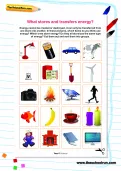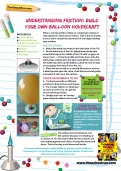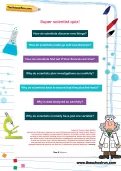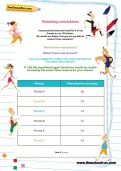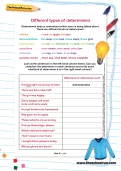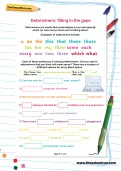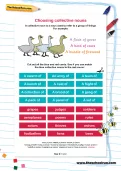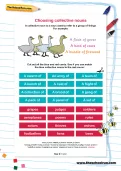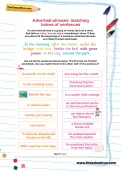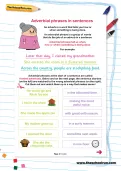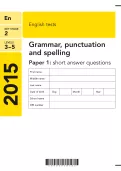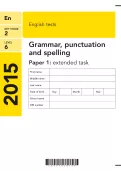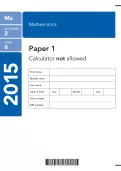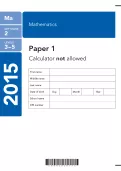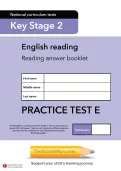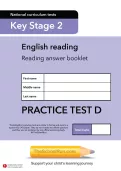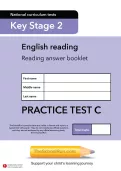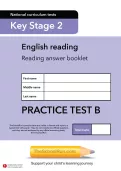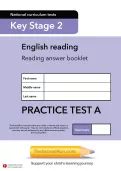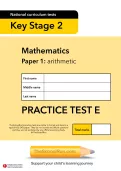In a text we can use ellipsis (three dots) to show that something is missing. Here are some quotations from an interview with a children’s author. Re-write them using ellipsis.
or
Register to add to your saved resources
Already a subscriber? to view this content.
Determiners help us understand which noun is being talked about. There are different kinds of determiner. Look at the sentences in the left-hand column. Can you underline the determiner in each sentence and write down what kind of determiner it is in the right-hand column?
or
Register to add to your saved resources
Already a subscriber? to view this content.
Determiners are words that come before a noun and specify which (or how many) nouns we’re talking about. Each of these sentences is missing determiners. Can you add in determiners that you think will make sense?
or
Register to add to your saved resources
Already a subscriber? to view this content.
Sometimes dashes are used to indicate a pause in sentences that contain two independent clauses. Look at these sentences and add in the dash where you think it should go in each one.
or
Register to add to your saved resources
Already a subscriber? to view this content.
Sometimes dashes are used in sentences to link different clauses and indicate a pause or break in the flow of a sentence. Look at these sentences and write in a dash where you think it should go in each one.
or
Register to add to your saved resources
Already a subscriber? to view this content.
Can you add the missing dashes into these sentences?
or
Register to add to your saved resources
Already a subscriber? to view this content.
Can you match up the collective nouns on the left with the correct nouns on the right?
or
Register to add to your saved resources
Already a subscriber? to view this content.
A collective noun is a noun used to refer to a group of things. Cut out all the blue and red cards. See if you can match the blue collective nouns to the red nouns.
or
Register to add to your saved resources
Already a subscriber? to view this content.
An adverbial phrase is a group of words (without a verb) that tells us when, how or where something is done. If they are placed at the beginning of a sentence adverbial phrases are called fronted adverbials. Cut out all these sentence halves. The first set are fronted adverbials. Can you match them to the other half of the sentence?
or
Register to add to your saved resources
Already a subscriber? to view this content.
Adverbial phrases at the start of a sentence are called fronted adverbials. Cut out these sentence starters and see if you can match them with the correct adverbial phrases.
or
Register to add to your saved resources
Already a subscriber? to view this content.
Help your child prepare for the English KS2 SATs, taken at the end of Year 6, with some revision and at-home practice. These complete Y6 SATs past papers from 2015 are the official past papers from the Department for Education, used in schools.
or
Register to add to your saved resources
Official 2015 English KS2 SATs papers (Level 6), free to download for at-home revision and practice. The Level 6 KS2 SATs were taken by very able children at the end of Year 6 until 2015 but are no longer used.
or
Register to add to your saved resources
The official 2015 Level 6 KS2 maths SATs papers, free to download for at-home practice. Level 6 SATs were taken by very able children at the end of Year 6 between 2012 and 2015.
or
Register to add to your saved resources
A complete set of official KS2 SATs maths papers (levels 3-5) from 2015. The past papers and answers and marking scheme can be downloaded for free from TheSchoolRun to offer at-home practice for the Y6 tests.
or
Register to add to your saved resources
Prepare for the KS2 SATs with some practice papers, written in the style of the new Year 6 assessments. Reading comprehension, spelling and grammar are part of the English test. TheSchoolRun mock papers are exclusive to subscribers.
or
Register to add to your saved resources
Already a subscriber? to view this content.
Our KS2 English SATs practice papers are exclusive to TheSchoolRun subscribers and written in the style of the new SATs. Each practice paper includes reading comprehension papers, a spelling test and a grammar test, as well as answers.
or
Register to add to your saved resources
Already a subscriber? to view this content.
Boost your child's confidence in the run-up to the KS2 SATs with some at-home practice. TheSchoolRun's mock papers, exclusive to subscribers, have been prepared to mirror the format of the official test.
or
Register to add to your saved resources
Already a subscriber? to view this content.
New-style practice SATs papers, available exclusively to TheSchoolRun subscribers to help children practise reading comprehension, spelling and grammar in the run-up to the May Year 6 assessments.
or
Register to add to your saved resources
Already a subscriber? to view this content.
Help your child get used to the new KS2 SATs format with our English practice papers, exclusive to TheSchoolRun subscribers. Each practice paper includes reading comprehension papers, a spelling test and a grammar test, as well as answers.
or
Register to add to your saved resources
Already a subscriber? to view this content.
Make practice papers part of SATs revision with our mock KS2 maths tests, written in the style of the new Year 6 assessments. Available exclusively to TheSchoolRun subscribers.
or
Register to add to your saved resources
Already a subscriber? to view this content.
